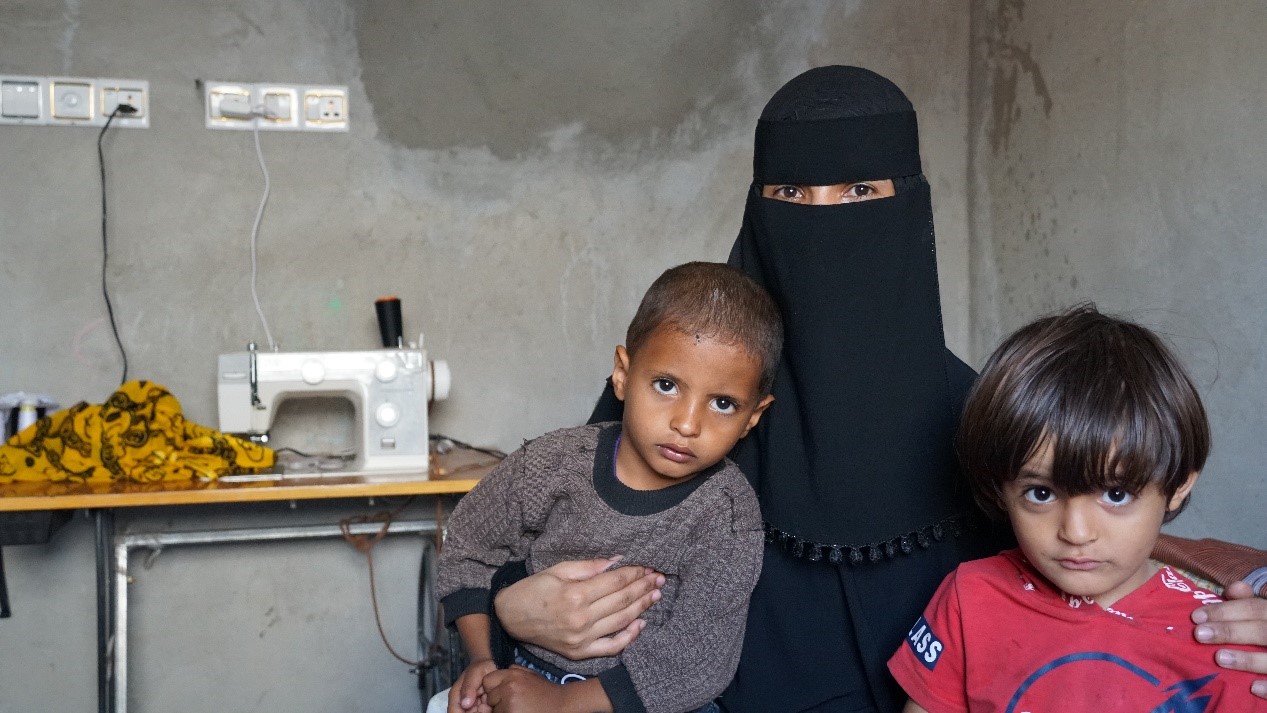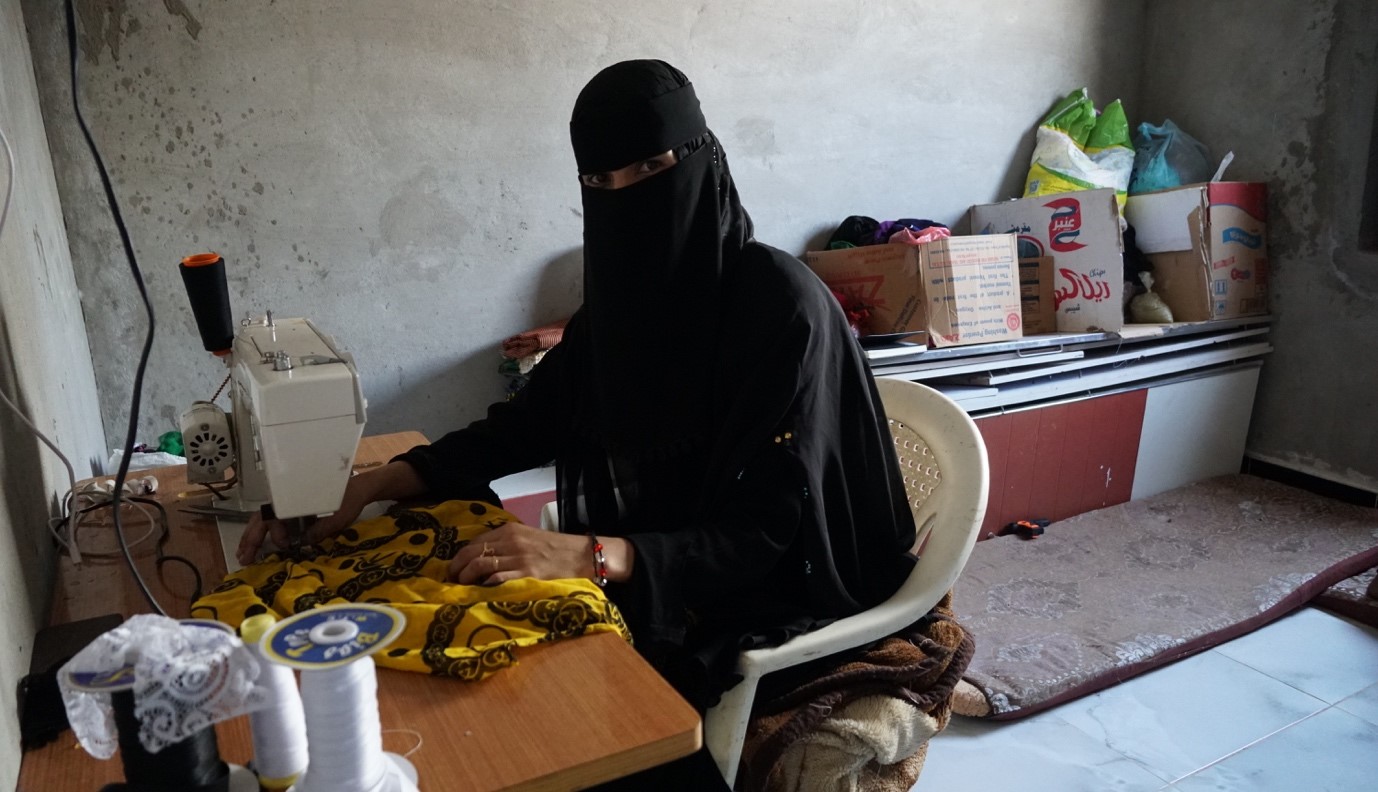As the Yemeni crisis moves towards its sixth year, the humanitarian situation is extremely concerning, with 24 million people who do not have enough food and need humanitarian assistance.
For one day each month, Naseem Muhammad Nasir, a 26-year-old widow, mother of two children and resident of Radfan district of Lahj governorate, walks to a food basket distribution point. She receives one food basket per month for eight months which allows her to feed her family.
Naseem believed that marriage would change her life for the better, and take her out of misery and deprivation. Her husband worked as a fruit and vegetable seller with a daily salary which provided the family with a good source of income. But then he fell ill and died, making Naseem’s life extremely painful.
She recalls: “My husband’s death was an unexpected blow that made our lives much more difficult. I was concerned about my children’s futures and I was frustrated because I was unable to provide our basic needs.”
Naseem didn’t find a solution, other than to return to a miserable life in her father’s house with her two children – two-year-old Muhammad and five-year-old Ali.
However, luckily for Naseem, shortly afterwards CARE began to distribute food baskets under a USAID-funded Yemen Emergency Food Assistance project which provides food vouchers for over three thousand of the most food-insecure people in Yemen.
This food assistance is a basic safety net for the poorest families who bear the brunt of the dire consequences of protracted conflict in Yemen, to spare them additional suffering and enhance their resilience in the face of mounting hardships.
“These food baskets made me feel stable and able to start thinking about working for income,” says Naseem. Within a short period, she had learned how to sew, and bought a sewing machine after saving money little by little since her household now had enough food from the programme.



